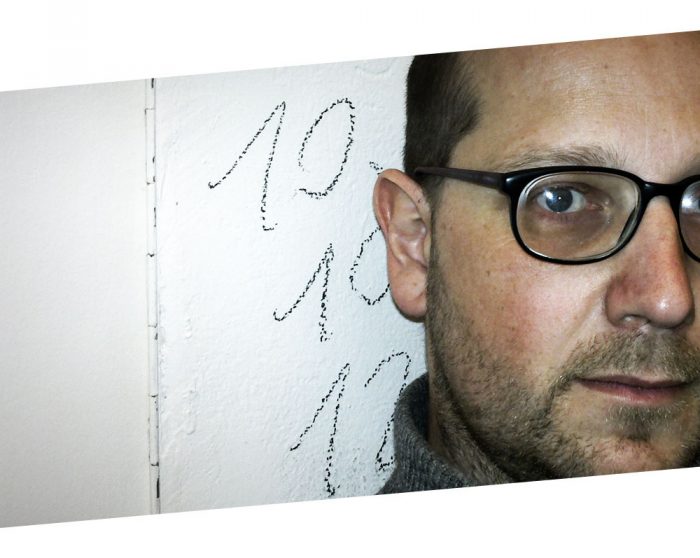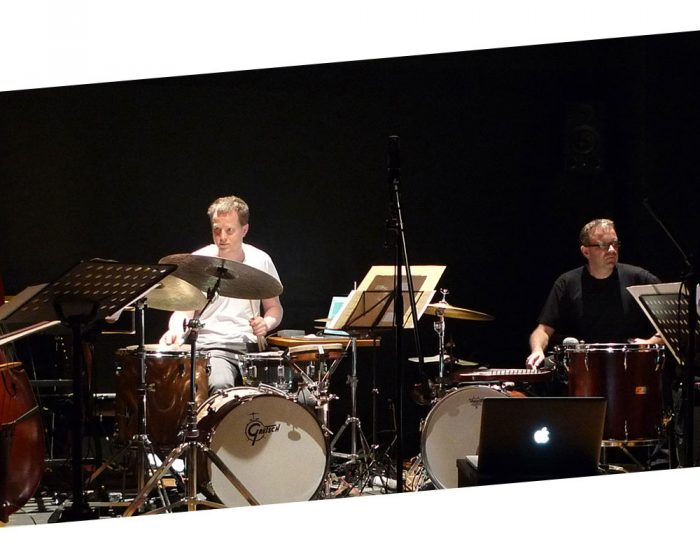PROGRAMM
- Klaus Lang: Tehran Dust (2013)
- Polwechsel: Datum Cut (2006)
- Polwechsel + Klaus Lang: Jupiter 500 (2015)
POLWECHSEL
- Burkhard Beins – Perkussion
- Martin Brandlmayr – Perkussion
- Werner Dafeldecker – Kontrabass, Elektronik
- Michael Moser – Violoncello, Elektronik
KLAUS LANG – ORGEL
INFO
Seit annähernd zwanzig Jahren ist Polwechsel eines der einflussreichsten Ensembles im Grenzgebiet von improvisierter Musik und zeitgenössischer Komposition.
Die Gruppe begann ihre Arbeit im Zuge eines musikalischen Paradigmenwechsels, der von einem kleinen überschaubaren Kreis von Musikerinnen und Musikern mit Zentren vor allem in Wien, Berlin und Tokyo vorangetrieben wurde und der die Entwicklung aktueller elektroakustischer und experimenteller Musik entschieden mitgeprägt hat. Grundlegend waren Verschiebungen in den Verhältnissen zwischen Avantgarde, Hoch-, Pop- und Subkultur der Neunziger Jahren. Dabei fanden sich Bezugspunkte im Rückgriff auf Spielformen von Improvisationskollektiven der 1960er Jahre, in Einflüssen der intensiven Klang- und Geräuscharbeit von Komponisten neuer Musik, in einer kritischen Distanz zur Energetik und Expressivität der freien Improvisation, in einer Öffnung gegenüber Rockmusik, Noise und elektronischer Clubkultur. Vor allem aber wurde der einst polemisch verfochtene Gegensatz von Komposition und Improvisation infrage gestellt. Hier entstanden musikalische Konzepte und Aufführungspraktiken, die sich durch keinen der althergebrachten Begriffe allein noch angemessen beschreiben ließen.
Matthias Haenisch
Klaus Lang studierte Komposition, Musiktheorie und Orgel. Klaus Lang liebt Tee. Was er nicht mag sind Rasenmäher und Richard Wagner. Musik wird von Klaus Lang nicht als Mittel gebraucht, um außermusikalische Inhalte zu transportieren, seien es Affekte, philosophische oder religiöse Ideen, politische Programme, Werbeslogans etc.. Musik ist für ihn ein freies, für sich stehendes akustisches Objekt. In seinen Arbeiten wird Klang nicht benutzt, er wird hörend erforscht und ihm wird die Möglichkeit gegeben seine ihm innewohnende Schönheit zu entfalten.
For about twenty years Polwechsel have been operating at the interface between improvised music and contemporary composition. Recognised as one of the seminal groups in this area, they started out when a paradigm shift in music was taking place. Driven by a small, close-knit circle of musicians, notably in Vienna, Berlin and Tokyo, this shift introduced profound changes in the development of contemporary electro-acoustic and experimental music, as the relations between avant-garde, high art, pop and various subcultures of the nineties were re-evaluated. The musicians involved in this transition drew on modes of playing employed by improvisational collectives of the sixties but also referred to influences from the highly concentrated sound and noise works of new music composers while keeping a critical distance to the energy and expressiveness of free improvisation, as well as embracing genres such as rock music, noise, and electronic club culture. But more than anything else they called into question the polemically defended former opinion of a dichotomy between composition and improvisation. This has resulted in musical concepts and performance practices that traditional terms alone can no longer adequately describe.
Matthias Haenisch
Klaus Lang (*1971 Graz / Austria) lives in Steirisch Lassnitz (Austria). He studied composition and theory of music (with H.M. Preßl, B. Furrer and Y. Pagh-Paan) and organ. Klaus Lang loves tea and dislikes lawnmowers and Richard Wagner. Klaus Lang’s music is not a means to convey extramusical contents, such as emotions, philosophical or religious ideas, political propaganda, advertisement etc… His music is no language used to communicate non-musical content. Music is seen as a free and selfstanding acoustical object. In his work he is not using sound, sound is explored and given the opportunity to unfold its inherent rich beauties.


Tickets
- Doors open | Einlass: 19:30
- Concert | Beginn: 20:00
- Box Office | Abendkasse: 10 €
- Reduced | ermäßigt: 8 €
- Evangelische Brüdergemeine Berlin
- Kirchgasse 14-17
- 12043 Berlin
- U7 Karl-Marx-Straße
- Bus M41 oder 171 Hertzbergplatz